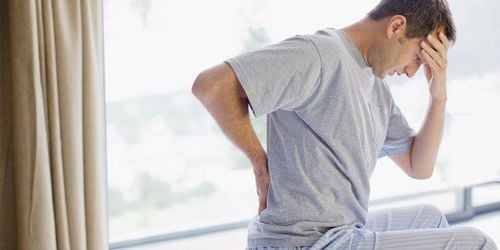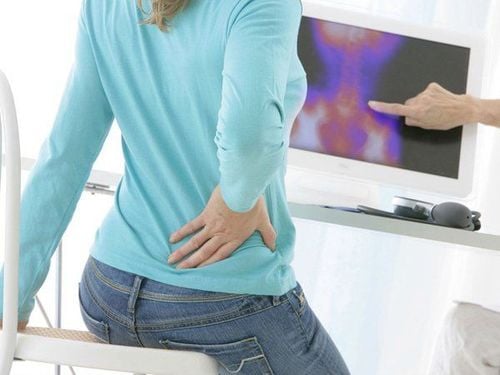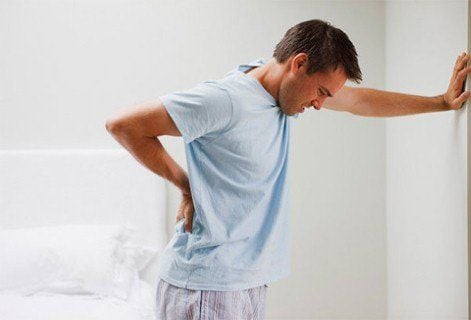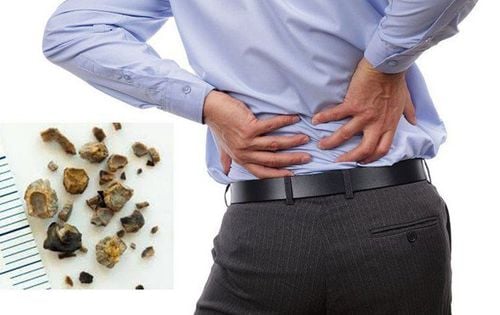This is an automatically translated article.
The article is professionally consulted by MSc Vo Thien Ngon - Urology Surgery Doctor, Vinmec International Hospital Da Nang.
Kidney stones are a fairly common disease in Vietnam, found in all ages and genders, in which adults account for the highest percentage. Because the two kidneys are located on either side of the back just below the rib cage and rest on the back muscles, kidney stones cause back pain.
1. What are kidney stones?
Stone is a disease that occurs when minerals in the urine are deposited in the kidneys, bladder, ureters... into solid crystals, most commonly calcium crystals. The size of the gravel can be up to several centimeters.Kidney stones are formed when urine output decreases and mineral levels in the kidneys increase. When either or both of these phenomena persist for many days, there is a risk of kidney stone formation.
Small kidney stones can be expelled with normal urination. However, when the large stones move in the kidneys, ureters, bladder... causing rubbing, damage, even blocking the urinary tract, it will leave very unpredictable consequences.
2. Causes of kidney stones
Arbitrary use of drugs; Improper diet; Habit of drinking less water; Prolonged insomnia; Fasting breakfast; Holding urine.3. Symptoms of kidney stones
Back pain due to kidney stones, pain in the lower ribs; Pain when urinating; Blood in urine; Urinary incontinence, urinary incontinence; Feeling of nausea and vomiting; Fever and chills.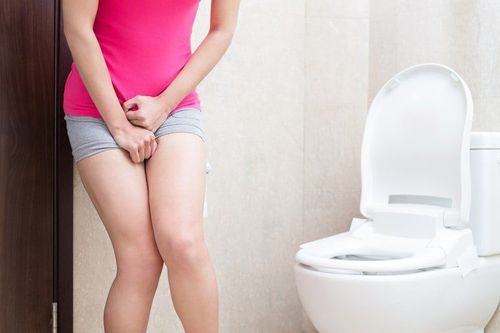
4. Why do kidney stones cause pain?
Pain caused by urinary stones can occur in many locations, the level of pain in each person is different. However, there are also many people who do not feel anything when they have stones.The urinary tract can be visualized as a water conduit system. Water from the kidneys, will pass through the ureters to the bladder, then through the urethra out. When there is a stone in the kidney, it means that the stone can also move along the journey as above, where the stone stays can also cause pain.
Painful kidney stones are caused by stones blocking the water passage, increasing pressure on the kidneys leading to pain. Although there are no pain-sensing nerves in the renal tubules, they are present in the surrounding tissues. When the renal tubules swell, they press on these tissues, triggering pain receptors to transmit signals.
Not all pain caused by urolithiasis is created equal. If the stone is in the kidney and is small, you will only feel a slight tightness in the hips and lower back. In the case of a large stone, in addition to regular tension in the hips and lower back, there is also a sharp pain when doing heavy work or changing positions.
In short, the kidneys are located under the ribs on either side of the spine and rest on the muscles of the back, which is why there are back pain caused by kidney stones. Kidney stone disease has a silent progression, people with kidney stone disease may not realize until they go to the doctor. If kidney stones are not detected and treated promptly, they will most likely lead to complications of kidney failure, so patients should not be subjective with the disease but should visit early and strictly adhere to the treatment regimen of the doctor.
Please dial HOTLINE for more information or register for an appointment HERE. Download MyVinmec app to make appointments faster and to manage your bookings easily.





